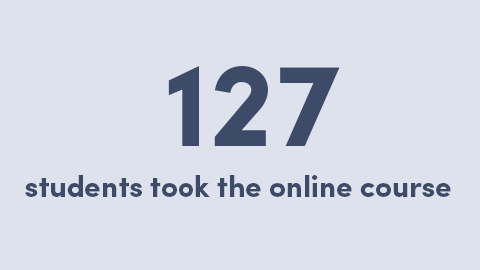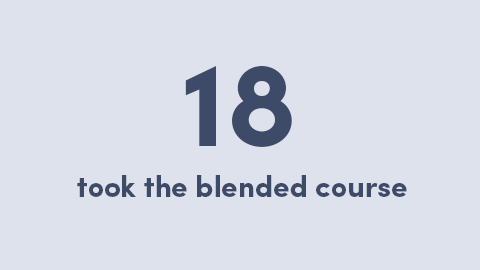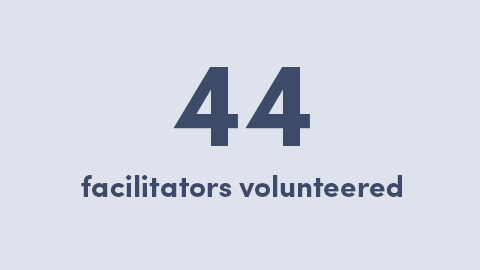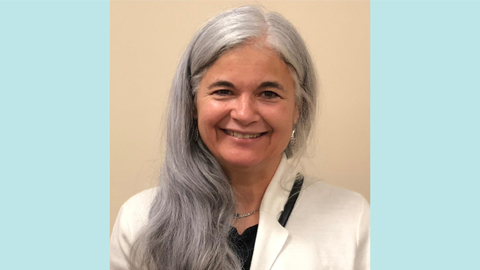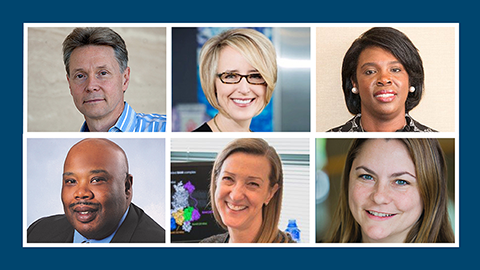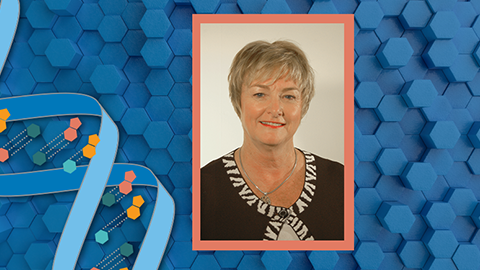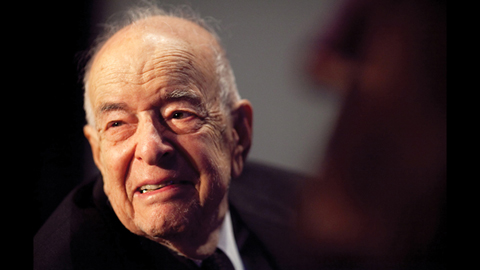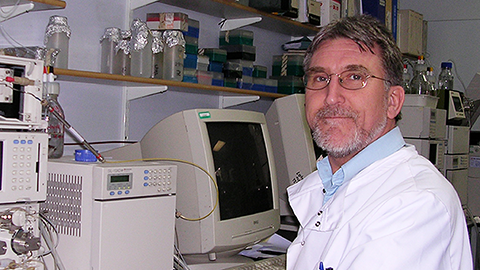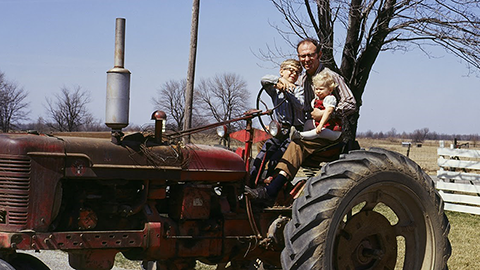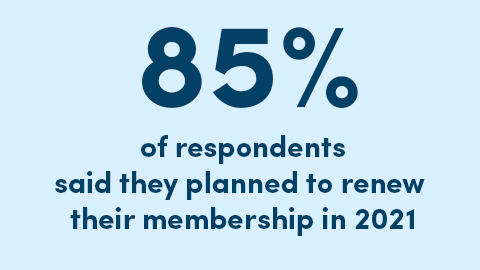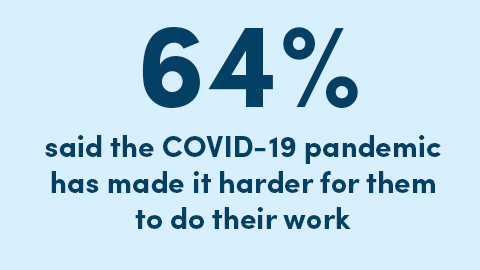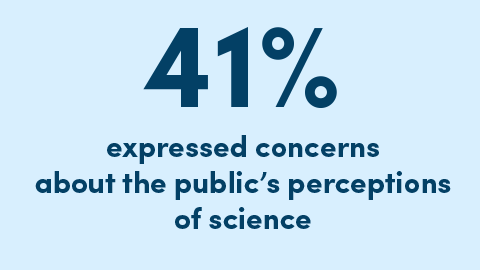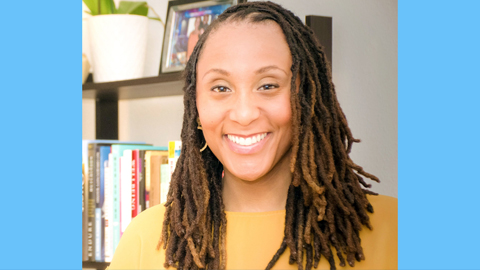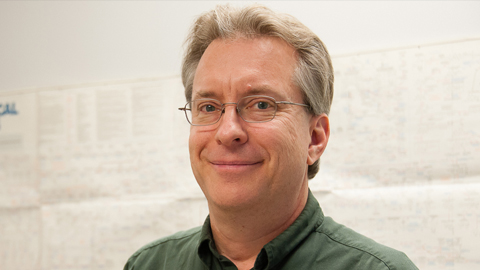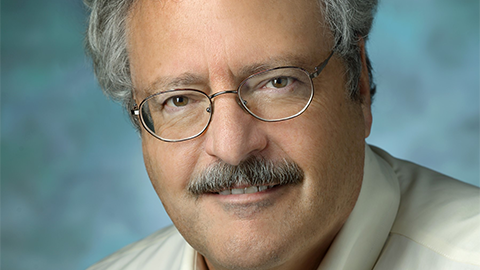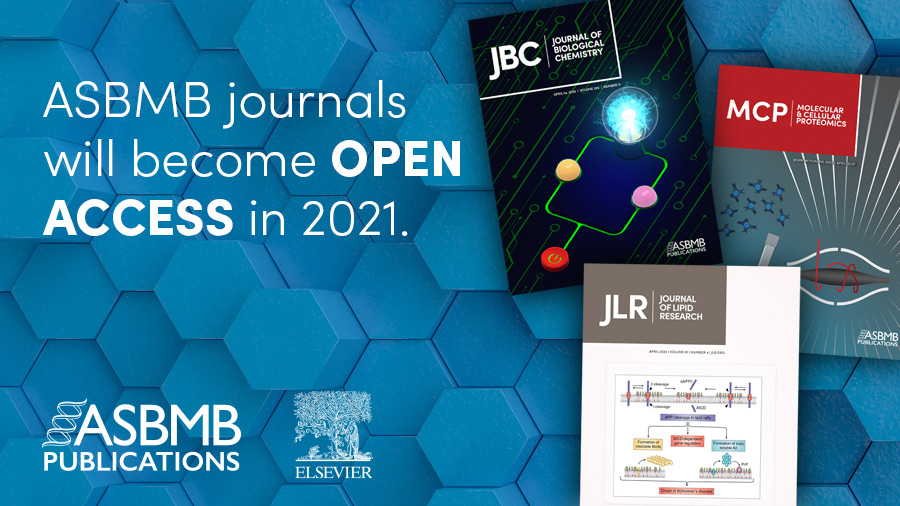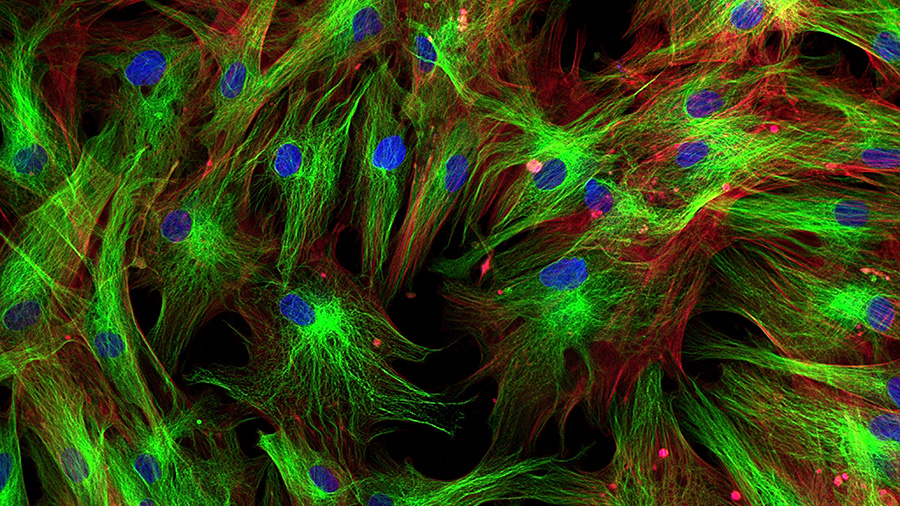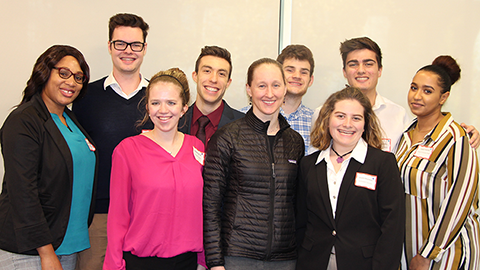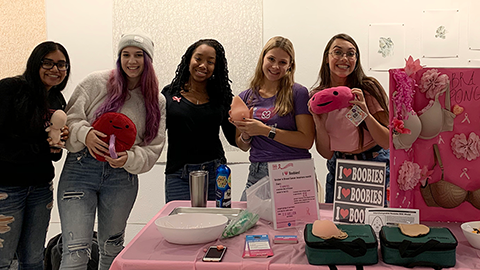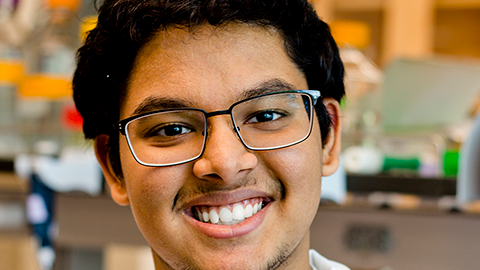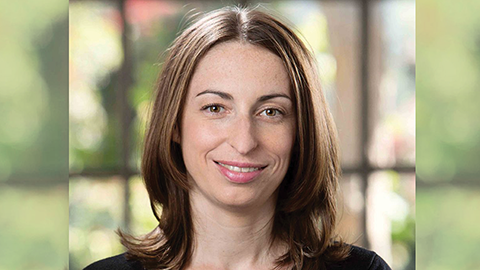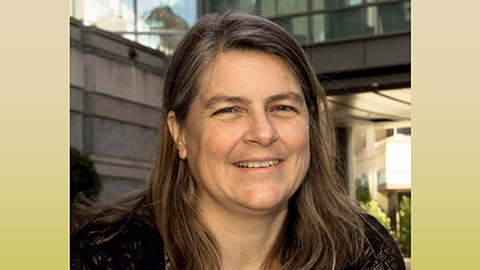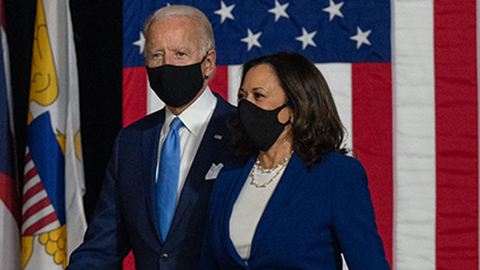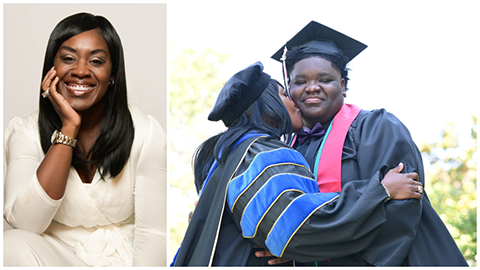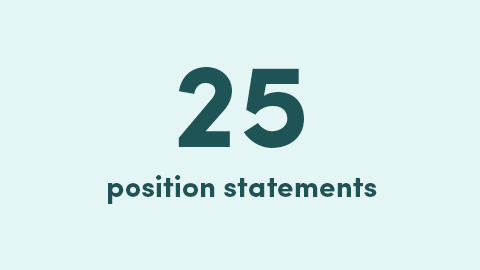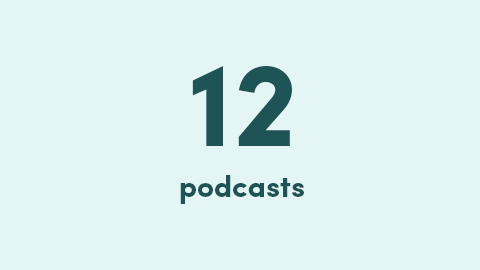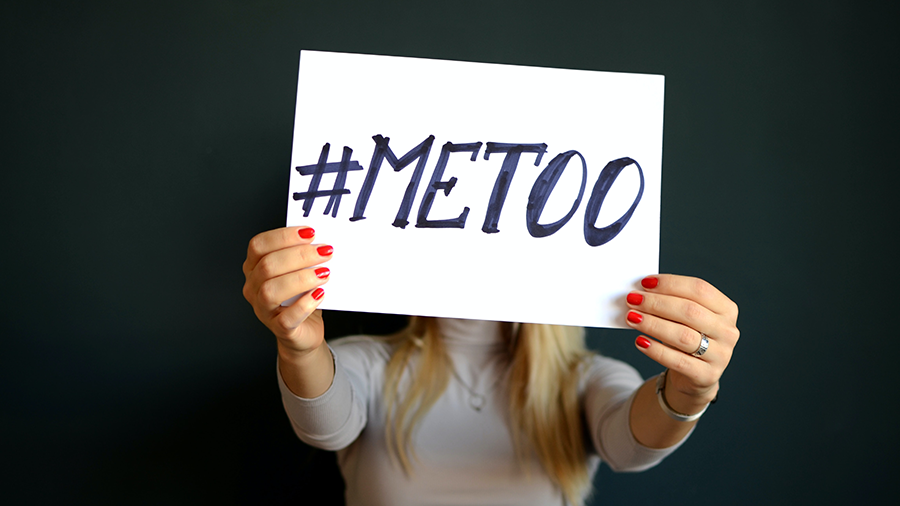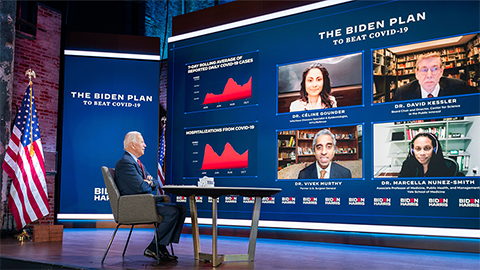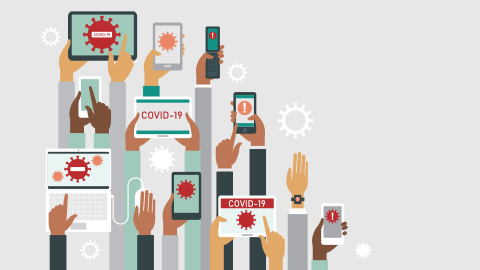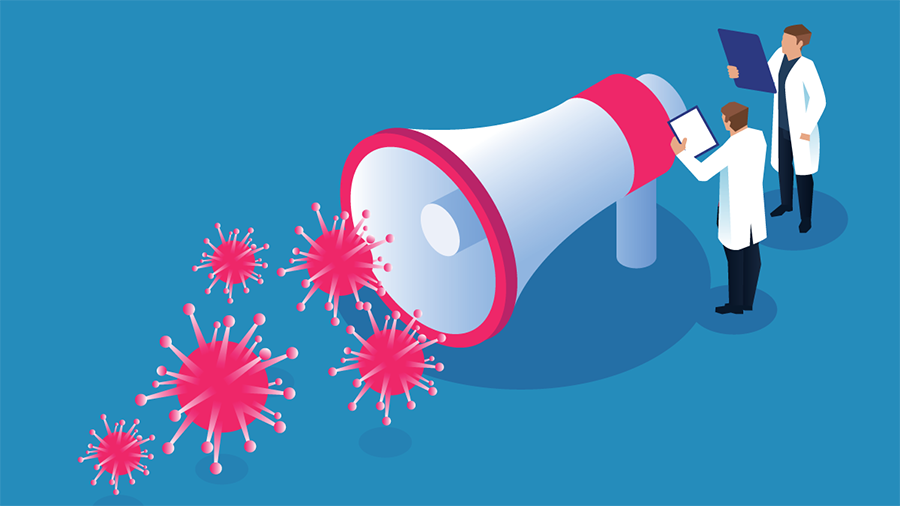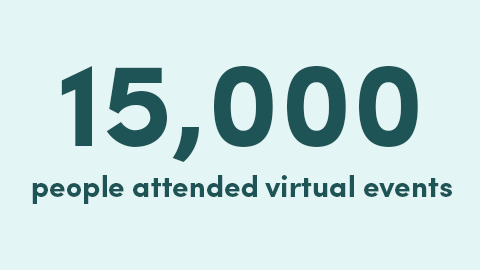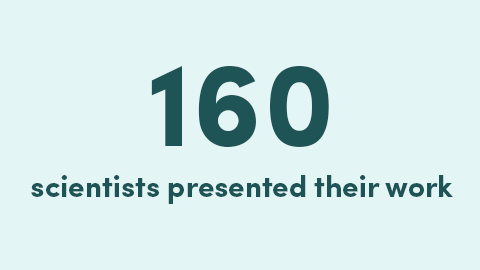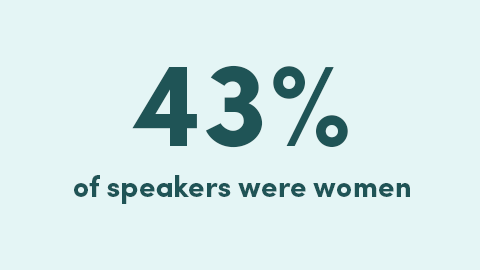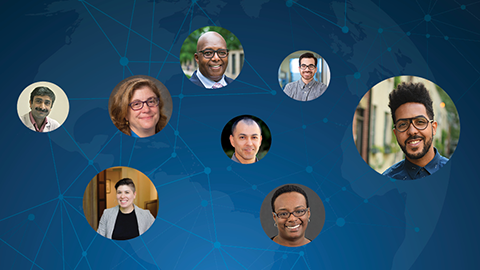Triumph amid upheaval and unease
Dear colleagues,
I don’t need to tell you that 2020 was a difficult year. You know that all too well. The COVID-19 pandemic has filled us with worry, dread and, at times, despair. We’ve lost a lot. We’re still coming to terms with the human toll. We’re still staring in the face of uncertainty.
But we’ve also witnessed and experienced extraordinary achievements. Scientists, though battered a bit by politicians and shaken by public skepticism, have teamed up, buckled down and soldiered on in the fight against the novel coronavirus. Members of the ASBMB community specifically have worked in intensive care units and emergency departments, pivoted their research, dropped everything to help ramp up testing and get supplies to those who needed them, devised new ways to effectively mentor trainees, and acted rapidly to make the online teaching of biochemistry and molecular biology more effective.
Importantly, we’ve been there for one another.
The ASBMB, as an organization, also has undergone significant changes — and there’s more to come in 2021. Our journals are now gold open access. We have new elected leaders. Our executive director is retiring after almost five decades of service. We have a new website and career center. And our meetings are now virtual. We’ve pulled out all the stops to share science far and wide and keep the community connected even from afar.
Three ASBMB members won Nobel Prizes! Jennifer Doudna and Emmanuelle Charpentier won the chemistry prize for their CRISPR studies, and Charles Rice won the medicine or physiology prize for his work on the hepatitis C virus.
Below are highlights of these and other successes and endeavors. I invite you to take a few minutes to scroll through them and reflect on just how much we can achieve together.
Best wishes in 2021.
Sincerely,

Toni Antalis
President, ASBMB
Jump to:
- Leadership changes
- In memoriam
- Member survey results
- New fellows program
- New industry advisory group
- Journals now open access
- Undergraduate education during a pandemic
- Education stats and stories
- New leadership awards
- Diversity and inclusion developments
- Advocacy
- Science communication looms large
- The future of ASBMB meetings is virtual
New fellows program
We launched an honorific program to recognize members who have made outstanding contributions to the field through their research, teaching and mentoring, or other forms of service.
“The ASBMB fellows will be expected to embody the society’s core values and serve as role models by performing excellent research, taking teaching and mentoring to new levels, advancing diversity in the field and giving back to the community by participating in society programs or publications.”
— Barbara Gordon, ASBMB executive director
New industry advisory group
ASBMB members who work in industry are developing programs for academic scientists contemplating R&D — and for industrial researchers who want to give back. Edward Eisenstein, a professor of bioengineering at the University of Maryland and chair of the ASBMB Membership Committee, is leading a new advisory group. Learn more about their plans.
Journals now open access
In May, we announced our three peer-reviewed journals were going fully open access in 2021.
“The ASBMB exists to meet the needs and respond to the demands of its members, and our members, in line with the broader scientific community, have called for immediate and free public access to research published in ASBMB journals in order to reduce barriers to scientific knowledge and accelerate discoveries,” the society’s leaders wrote.
Undergraduate education during a pandemic
When it became clear that the COVID-19 pandemic was going to drastically change the way colleges and universities teach biochemistry, a dedicated group of ASBMB members put together a set of resources for the community to use. See the materials.

Education stats and stories
The ASBMB accreditation program, certification exam program and Student Chapters program continued to grow.
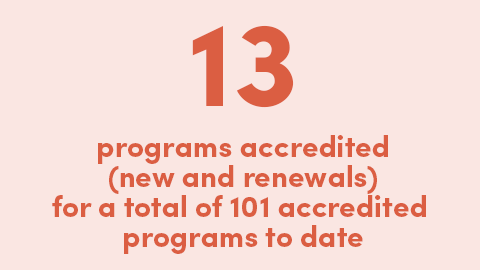
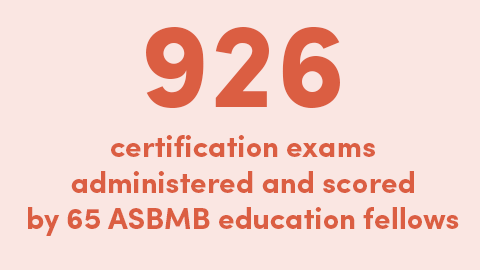
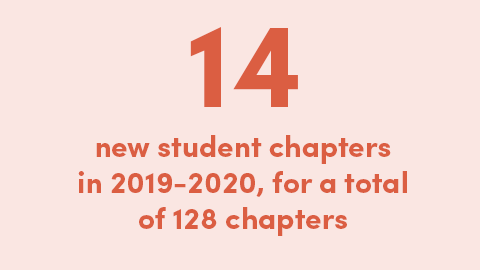
Diversity and inclusion developments
The ASBMB will receive almost $1.27 million over five years from the National Institute of General Medical Sciences to serve as one of three inaugural host organizations for the Maximizing Opportunities for Scientific and Academic Independent Careers, or MOSAIC, program. The society is developing a program that will support postdoctoral fellows and new investigators from diverse backgrounds embarking on careers at research-intensive institutions. Learn about the ASBMB MOSAIC program.
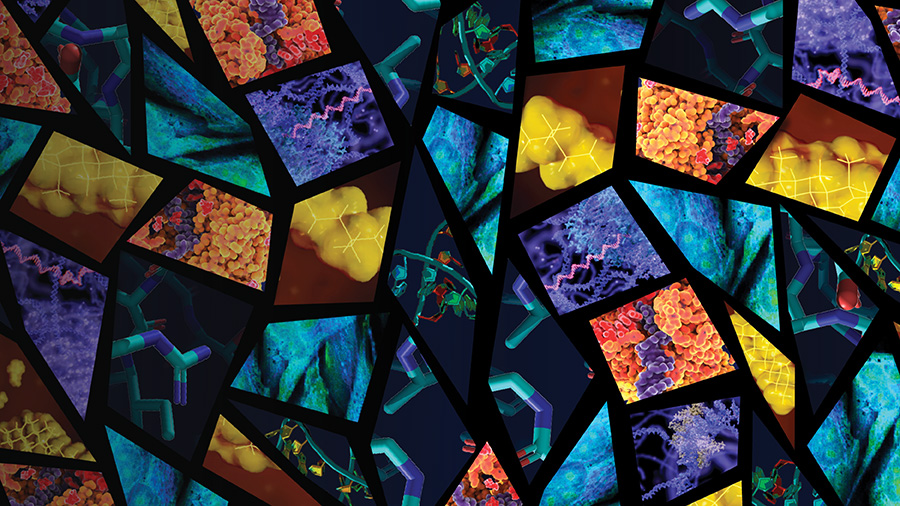
Contribute to the Sewer scholarship fund
The Marion B. Sewer Distinguished Scholarship for Undergraduates offers financial support to students who will one way or another diversify the scientific workforce. Each year, the society awards five $2,000 awards to outstanding undergraduates. Beginning in 2021, we would like to double the number of Sewer undergraduate scholarship awards we offer.
Help us endow our diversity award
The Ruth Kirschstein Diversity in Science Award honors an outstanding scientist who has shown a strong commitment to the encouragement of underrepresented minorities in the scientific enterprise. It carries a prize of $3,000. Your tax-deductible gift will help us make our award sustainable into perpetuity.
Science communication looms large
The COVID-19 pandemic has underscored just how important it is to communicate scientific concepts and public health recommendations clearly and compellingly. Using the right words and tone can literally save lives. The ASBMB’s online course “The Art of Science Communication” teaches participants how to present science to nonexpert audiences. This year, the course was more popular than ever.
